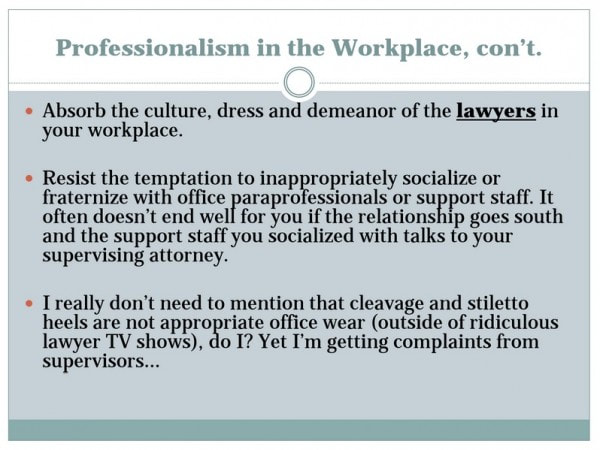|
0 Comments
It often happens that support staff move from a large law firm to a smaller one. This transition can be stressful because small firms work quite differently than large ones. In order to make the transition as smoooth as possible, here are a few best practices:
 There is a difference between professional skills and professionalism. When we talk about personal presentation – both when you are job hunting and when you are on the job – we are talking about professionalism. Professionalism may be easy to say but it is not that easy to achieve, especially early in your career. It takes time to learn what is and what is not appropriate. One of the best pieces of advice you can follow is to find the person in your office (or if you are still looking for a job, in your life) who best exemplifies the way you want to present yourself. Emulate them. Watch what they do and how they do it. Watch how they treat people and think about how they are treated in return. If you present yourself well, people will respond to you on a more positive level. It is human nature to respond to others in the way they present themselves. If you present yourself with dignity and grace, people will respond to you that way. These few aspects of professionalism will help set you apart from other applicants or other staff:
Here are some easy ways to polish up your presentation:
|
AuthorDom Bautista Archives
August 2021
Categories |

 RSS Feed
RSS Feed